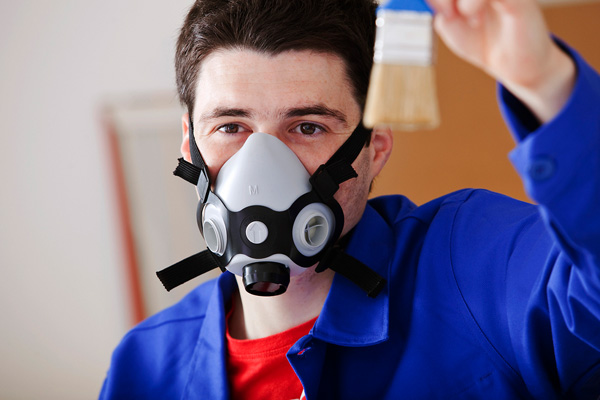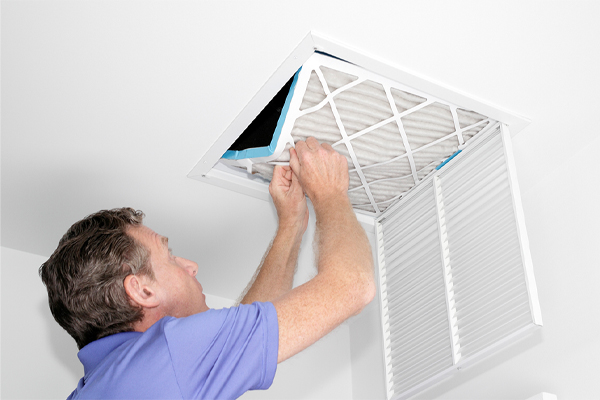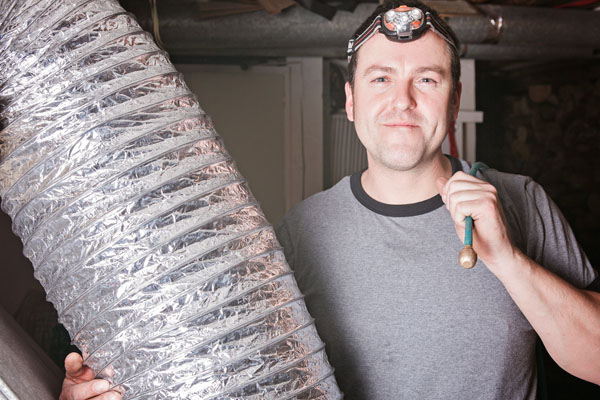Improve Your Home’s Indoor Air Quality With These Simple Tips

Air pollution is something that’s commonly associated with car exhaust, dirty factories, and many other factors that contribute to poor outdoor air quality. What many people fail to realize is that air pollution is also a common and serious problem indoors.
This fact is definitely deserving of attention, given that most people spend the vast majority of their time indoors. The good news is that you can improve indoor air quality in numerous ways. That way, you can ensure the well-being and health of those you love. This article talks about the definition of indoor air quality, the different causes of indoor air pollution, and various strategies for improving the quality of the indoor air at home.
What Is Indoor Air Quality?
Contents
Indoor air quality (IAQ) refers to the quality or condition of the air that you breathe in when inside a closed building or structure. The IAQ of a building can affect the well-being and health of all residents. It can also have an impact on comfort and mood. Alarmingly, studies have shown that there are far more airborne contaminants inside of buildings than there are outdoors. According to researches, current practices in building construction are a primary cause.
To promote higher levels of energy efficiency, we tend to build increasingly airtight spaces. Although we’re able to reduce energy consumption by doing so, we lose natural ventilation and the fresh air that it supplies. Irritants within the indoor air become trapped in the home. Over time, these can start building to dangerous levels. Ducts start recirculating dust, dander, and dirt in steadily increasing amounts.
Common Causes Of A Poor Indoor Air Quality
Various aspects connect poor indoor air quality as an issue to how we live. For instance, many households have pets for security, companionship, and other reasons. Despite the numerous benefits that they provide, pets are also capable of generating considerable amounts of dander, shed fur, and other allergens. Also, painted walls frequently release volatile organic compounds.
Additionally, dust and dirt find their way into the home when tracked in on the shoes or allowed in via the HVAC system. Furthermore, persistent moisture can lead to the development of mildew and mold. Indoor air quality concerns can additionally arise as a result of many household chemicals.
The Impact Of Having Poor Indoor Air Quality
Homeowners must be aware, or they can start suffering the ravages of having a low indoor air quality. Household residents can develop respiratory issues like persistent coughs, asthma, and general breathing troubles. Digestive problems and things like chronic fatigue can start to crop up. At the very worst, severe problems with indoor air quality can eventually lead to cancer.

What Are The Effects Of HVAC Ductwork On The Air Quality Of Your Home?
Your home heating and cooling equipment rely on ducts to circulate and distribute air throughout the building. When pollutants exist within this network, the entire home fills with air that’s contaminated.
That can harm everyone in the home until corrective action is taken. You must raise the indoor air quality standards in your home.
How Can My HVAC System Improve Indoor Air Quality?
1. The HVAC Air Filter
Your HVAC system has an air filter that’s meant to extract pollutants from the indoor air. Built-up dirt on the surface of this filter, however, can start to impede airflow and may lead to problems with inefficiency. This component must be regularly cleaned or replaced. A casual inspection once each month will let you know whether it’s the right time for a filter change or cleaning, depending on your system’s model.

2. Ultraviolet Light
UV light can be harmful to be people, but it can also be beneficial when used as a solution to indoor pollution problems. For instance, UV light can destroy mold, bacteria, viruses, and many other harmful organisms. Ultraviolet light can zap these pathogens instantly via brief exposure. The installation of UV lamps at specific locations throughout your HVAC system can be very helpful to this end. Learn more by speaking with your HVAC service.
3. Dehumidifiers And Humidifiers Within The HVAC System
Indoor comfort can definitely be impacted by the humidity level in your home. Thus, controlling indoor humidity is critical. During the winter months, humidity levels can drop, and dry air can lead to respiratory problems. You can solve this problem with a humidifier. During summertime, the humidity will rise, which can, in turn, produce the ideal conditions for many harmful pathogens, including mold. You can balance humidity levels at this time with a dehumidifier. Moreover, modern HVAC equipment can control indoor moisture levels. If your HVAC unit is old and outdated, you might want to replace it with an option that boasts this particular feature. Speak with a trusted HVAC company to get more info.
4. Inspecting Your Ductwork
As stated before, the ducts have the task of routing indoor air throughout the building. They end in each room so that everyone in the home can remain comfortable. Therefore, you should have regular ductwork inspections performed to make sure that your system has no leaks and is both clean and pollutant-free.
Also, if your ductwork system has a leak, dirt, many other contaminants can enter the system where they’ll constantly cycle throughout the living environment. Thus, if your home heating and cooling system is a forced-air system, have your ductwork cleaned regularly. Call your HVAC contractor to set up a ductwork inspection now.

5. Tune Up Your Home HVAC System
Routine maintenance of your home heating and cooling system will help this equipment remain energy efficient and free of problems. Professional tune-ups of your HVAC equipment will also allow your provider to identify and resolve issues that involve indoor air quality. Moreover, these services will ensure that you’re fully compliant with the warranty terms that are necessary for keeping your warranty valid and active. These inspections should be performed on both your cooling and heating system at least once annually.
Get In Touch With McAllister Energy For Your Home Heating & Cooling Needs
Strategies for improving indoor air quality should be important to homeowners, given that the quality of your indoor air can have a direct impact on the well-being, health, and comfort of all building residents. Furthermore, getting help from professionals and being vigilant will allow you to experience the benefits of stress-free and clean living.
McAllister Energy provides top-notch HVAC services in your area. We are staffed by seasoned and proficient technicians who are NATE-certified. They are capable of delivering superior HVAC replacements, tune-ups, installations, and repairs. Indoor air quality, energy efficiency, and home comfort are among our top priorities.
Are you ready to improve the indoor air quality of your home? Call McAllister Energy to request a free, no-obligation consultation. We will find the right solutions for both your home and your budget. We stand behind all of our work with solid satisfaction guarantees. Contact McAllister Energy to learn more about the many things that we’re able to do for you.
You can click here to contact us now or call us at (856) 665-4545 to find out more!
